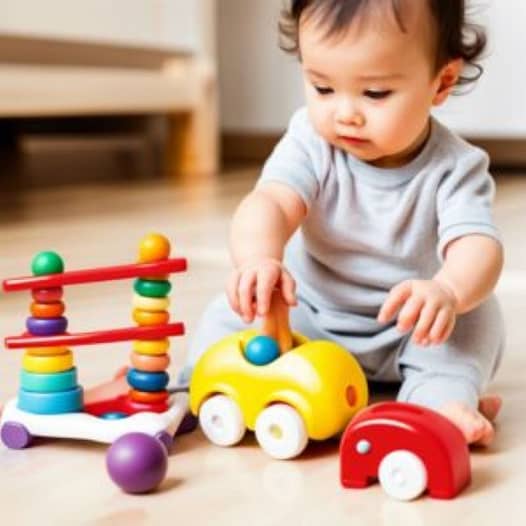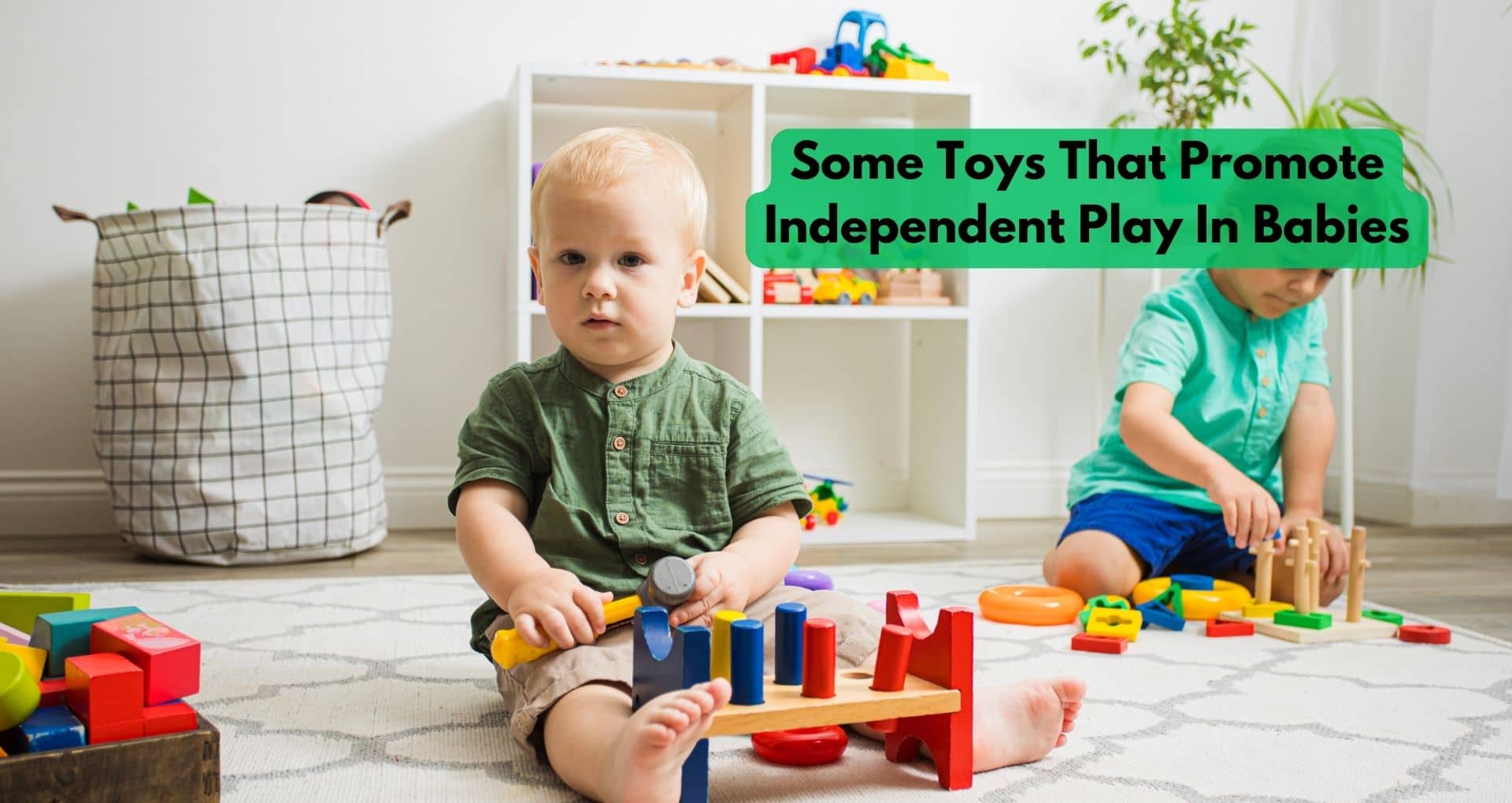When it comes to babies, it’s never too early to encourage independence and foster their imagination. But the question remains: are there any toys out there that can actually help promote independent play in babies? The answer is a resounding yes!
From stacking blocks to interactive puzzles, there is a wide range of toys specifically designed to empower babies to explore, engage, and play on their own. In this article, we will explore some of these toys and how they can not only entertain but also stimulate your little one’s creativity and cognitive development.
Benefits of Independent Play
Independent play offers numerous benefits for babies. It encourages them to develop key skills, such as problem-solving, decision-making, and creativity. It also helps them build self-confidence and promotes a sense of autonomy. Babies who engage in independent play are more likely to become self-sufficient and adaptable individuals as they grow older. Moreover, independent play can foster a sense of calm and contentment in babies, allowing them to explore their surroundings and their own capabilities at their own pace.
Age-Appropriate Toys
Providing age-appropriate toys is essential to support your baby’s independent play. Toys that are too advanced or too simple may deter their engagement or frustrate them. It is important to consider your baby’s developmental stage and select toys that align with their abilities and interests. By doing so, you are setting them up for success and ensuring they can fully engage with the toys in a meaningful way. Remember, each baby is unique, so it’s important to observe their preferences and adjust accordingly.
Choosing the Right Toys
When selecting toys for independent play, there are several factors to consider. First and foremost, prioritize toys that are safe and free from small parts that could pose a choking hazard. Look for toys that are made from non-toxic materials and have been tested for safety. Additionally, consider toys that are interactive and stimulating, encouraging exploration and problem-solving. Toys that can be manipulated and offer various textures and sounds are particularly beneficial for promoting independent play in babies.

Source: TheTechBrain AI
Toys for Cognitive Development
Toys that promote cognitive development in babies are designed to engage their problem-solving and critical thinking skills. This could include shape sorters, puzzles, and stacking toys. These types of toys encourage babies to analyze, categorize, and problem-solve as they manipulate and fit different pieces together. By engaging in these activities, babies develop their cognitive abilities, spatial awareness, and hand-eye coordination.
Toys for Motor Skills
Toys that promote motor skills development help babies strengthen their muscles and improve their coordination and dexterity. Examples of such toys include activity centers, push toys, and play mats with hanging toys. These toys encourage babies to reach, grasp, crawl, and walk, helping them develop their gross and fine motor skills. As babies engage with these toys, they also develop their hand-eye coordination and spatial awareness.
Also Check: How Do I Select A Safe And Comfortable Baby Backpack Carrier?
Toys for Sensory Exploration
Sensory exploration is crucial for babies as it helps them make sense of the world around them. Toys that promote sensory exploration often incorporate different textures, colors, sounds, and movements. This could include sensory balls, plush toys with different fabrics, or rattles with different-sized beads. By engaging with these toys, babies enhance their sensory perception, develop their tactile and auditory senses, and learn to differentiate between various stimuli.
Toys for Imaginative Play
Imaginative play is an essential aspect of a child’s development, even at a young age. Toys that promote imaginative play include dolls, stuffed animals, play kitchens, and vehicles. Babies can use these toys to create their own narratives, mimic real-life situations, and explore their imagination. By engaging in imaginative play, babies enhance their creativity, problem-solving skills, and social-emotional development.
Toys for Language Development
Toys that promote language development encourage babies to repeat sounds, recognize words, and engage in simple conversations. Examples of such toys include picture books, musical instruments, and interactive toys that respond to actions or vocalizations. By exposing babies to language-rich environments, they become more familiar with vocabulary, improve their communication skills, and develop stronger language abilities.
Safety Considerations
While promoting independent play in babies, it is crucial to prioritize safety. Always inspect toys for sharp edges, loose parts, or potential choking hazards. Ensure that toys are age-appropriate and free from toxins. Regularly check toys for any wear and tear that could pose a safety risk. Additionally, supervise your baby during playtime to prevent any accidents or injuries. By prioritizing safety, you can create a secure environment that allows your baby to explore and learn confidently.
The Role of Parents and Caregivers
As a parent or caregiver, your role in supporting independent play is vital. Offer a safe and stimulating environment where your baby can freely explore and engage with their toys. Avoid constantly intervening or directing their play, as this hinders their independence. Instead, be present and observe their play, providing guidance and encouragement when needed. Engage in interactive play with your baby, as this strengthens the parent-child bond and promotes positive social interactions. By balancing your involvement in their playtime, you can foster their independence while also building a strong connection with your little one.
Conclusion
There are numerous toys that promote independent play in babies. By understanding your baby’s developmental stage, selecting age-appropriate toys, and providing a nurturing environment, you can support their cognitive, motor, sensory, imaginative, and language development.
Remember to prioritize safety and supervise their playtime, while also allowing them the freedom to explore and learn on their own. Together, you and your baby can embark on a journey of discovery and growth through the wonders of independent play.
